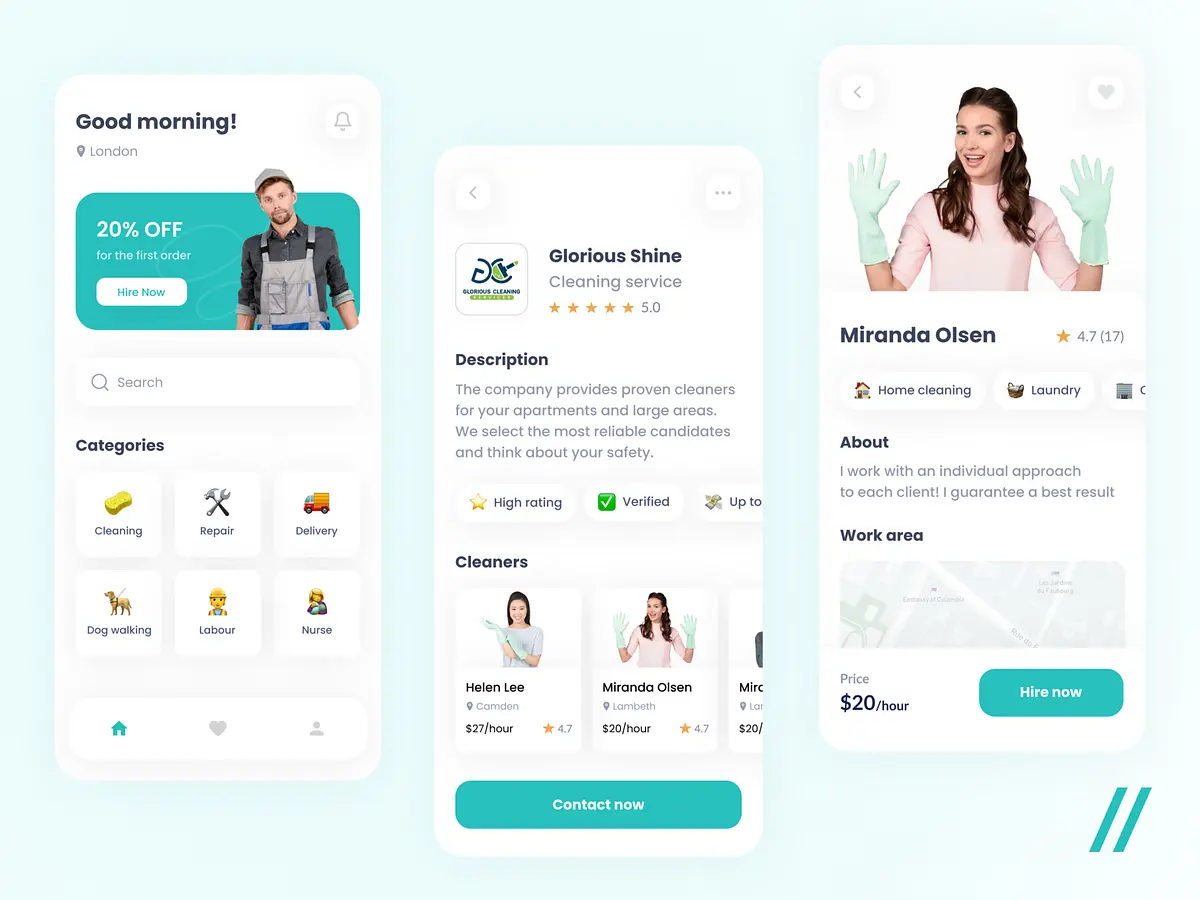In-house Vs Outsourcing Software Development


One of the most profitable sectors of the company is software development. With an increasing number of people utilizing smart devices daily, the world continues to change, and new demands can only be met by new, inventive software.
Software outsourcing is a viable option for developing software in-house, but it comes with advantages and disadvantages. We’re here to explain both in-house vs. outsourcing software development and show you what each offers.
Software development by building your own in-house team, often known as insourcing, is the process of creating software utilizing the resources available at your organization.
You don’t get any outside aid; all in-house developers do their allocated responsibilities to complete the work for you. Using additional resources generated within your organization is also included in this phrase.
The internal development process is very straightforward, with all core tasks assigned to you to gain the success or failure of the project.
You handpick your in-house development team for a certain set of responsibilities.
Every team member must have a distinct role to play, whether it’s a specialist with the know-how to cover a gap in your project or a leader who will ensure the rest of the team stays on track and works together to achieve their objectives.
It takes time to assemble an in-house staff. The process might be long and arduous, but everything will be alright if you know what you’re doing and play your cards well.
Because the team already works for you, you will have a dedicated, loyal team that you can rely on for software projects.
The following are some of the most important advantages of internal software development:
The biggest advantage of working with such a group is that you may have complete control over the development process. You always know what your coworkers are up to during working hours while being in the same office.
You have the option of forming a team consisting solely of professionals you enjoy working with. There is a high chance that the chosen staff is the greatest in your mind.
However, this might take a long time. Choosing the right squad may be a pretty fair deal, depending on your personality, because you may have total confidence in all project participants.
An in-house staff may rapidly handle changes. It would be best to make a major change to the product immediately. Therefore, a team under your total supervision will be able to make the required modifications more quickly.
Local professionals are more likely to share their own beliefs and ideas. Finding a common language with such folks will be much easier.
The following are some of the difficulties you could encounter:
All workers’ salaries and benefits will be your responsibility. The larger a development team is, the more expensive the project will be to complete. A full-time in-house staff might cost three to four times as much as an outsourced workforce.
As you can see, the development process will take some time. You will need to advertise job openings and conduct interviews to assemble the right team.
Time is indeed money. Furthermore, the project’s late start provides your rivals with a competitive advantage.
You need to choose professionals who possess the necessary abilities and knowledge. You must also decide whether a project should be written in Python or Java, and so on. As a result, forming an in-house team needs a fundamental understanding of technology.
Despite the seemingly high expense, there are compelling reasons to develop your own team.
You don’t have a financial limitation.
If you are not a self-funded venture company with a large sum of money on hand, utilizing an in-house workforce will provide you with every advantage and none of the drawbacks.
You must be in complete command.
An in-house development system enables you to mitigate the risks of issues arising. Specifically, you can discuss the decisions that impact the product’s development with your software development team. Therefore, any issues are dealt with right away.
When deciding between in-house development and outsourcing, keep in mind that the first choice may be better if you’re working on a long-term project.
Especially if you want to maintain and update it for a long time after completing all of its responsibilities, you will need a sound budget to pay all of these charges properly.
When hiring a software development company, you can decide how the team will operate. Almost every company provides full-time and part-time growth opportunities. Several substantial benefits to this form of collaboration are well worth considering.
“Should you outsource software development?” you probably ask yourself right now.
Related article:
We have developed a list of the top reasons to cooperate with a third-party company:
You may avoid all of the hassles of employee selection and recruitment by signing a contract with an outsourcing business.
Such businesses already have all of the professionals required to complete your software project. As a result, the team may begin working on the project right after the contract is signed.
You will get unrestricted access to a global pool of seasoned experts. Moreover, investing money in their skill development will not be necessary.
Because outsourcing businesses compete fiercely, they go to considerable lengths to guarantee that their personnel has in-depth expertise and exceptional software development abilities.
All you have to do now is pick a team that matches your preferences. Licensed project managers are also available through reputable outsourcing companies to connect to the rest of the team.
You define all of the objectives for the manager, who then assigns work to developers, testers, and other team members. In addition, the project manager gives you thorough information on the project’s progress.
You may focus on the most critical activities while outsourcing the rest. It is also how Google concentrates on developing critical company products and leaving lower-priority tasks to outsourcing companies.
Another apparent benefit is the ability to scale up or down your staff at any moment.
You may, for example, be under pressure to finish a series of duties as quickly as feasible. When dealing with this, you will need an outsourcing firm to expand its personnel to handle the tasks.
Specifically, you should communicate with your management that you need to extend the crew, and in a blink of an eye, more professionals will be already on the job. As such, you don’t need to put any more effort into this situation.
Related article:
The following are some of the outsourcing organizations’ less appealing features:
The time difference might be a great issue for optimizing the cooperating process. Depending on the firm’s time zone, the difference might range from 2-3 hours to 10 hours or more. Communication is severely slowed as a result of this.
And in other situations, you might be at a high risk of being denied scheduling an urgent meeting in 10 minutes.
If this is your first project, you are almost certainly pretty excited. However, your enthusiasm will not be shared by all outsourcing companies. Specifically, your project will be viewed as simply another sub-task to be performed by them.
This means not that their work won’t satisfy your standards; nonetheless, the disparity in passion may irritate some newcomers to the approach.
Although outsourcing is advantageous for various reasons, there are some aspects to consider when outsourcing a software development team. The most important of these is determining the optimal time to accomplish it.
In many cases, outsourcing is the greatest option for getting things done. These are a few examples:
It would take a long time to develop this level of agility, talent, and expertise inside an in-house staff. Meanwhile, outsourcing is a great alternative when time is important, and deadlines are met promptly.
There is no answer to the difference between in-house and outsourcing software development. What works for one business may not work for another. To pick one, you’ll need to assess your needs and resources.
In certain circumstances, combining the two will yield the best results. As we indicated, you will need to identify the correct provider to deal with. Hopefully, you have gained information from this post about “What is in-house and outsourced development?” and “What is the difference between in-house and outsourcing?”


Table of ContentsI. In-House Software Development1. Pros and Cons Of In-House Development team2. When to Use In-House Development Team?II. Outsourcing Software Development1. Pros Of Outsourcing Software Development team2. Cons Of Outsourcing Software Development3. When should you outsource software development?Conclusion Technological advancements are paving new paths for companies across different sectors, and the logistics industry is no exception. According to a survey by Gartner, 87% of supply chain professionals plan to invest in enhancing the resilience of their platforms. Logistics encompasses a broad and complex array of processes that demand the utmost precision and continuous optimization. Companies can automate and streamline these…
26 July, 2024

Table of ContentsI. In-House Software Development1. Pros and Cons Of In-House Development team2. When to Use In-House Development Team?II. Outsourcing Software Development1. Pros Of Outsourcing Software Development team2. Cons Of Outsourcing Software Development3. When should you outsource software development?Conclusion The technology sector is advancing at an unprecedented pace, and the HR landscape is evolving right alongside it. To attract top talent, HR professionals and organizations need to stay ahead of emerging technology hiring trends. This year, we are witnessing significant shifts in hiring practices that will redefine our understanding of the future workforce. According to a Microsoft study, the number of…
25 July, 2024

Table of ContentsI. In-House Software Development1. Pros and Cons Of In-House Development team2. When to Use In-House Development Team?II. Outsourcing Software Development1. Pros Of Outsourcing Software Development team2. Cons Of Outsourcing Software Development3. When should you outsource software development?Conclusion Customized software plays a major role in managing various tasks within the telecom industry. It is essential for allocating numbers to subscribers and managing networks through optimized and AI-enabled routing protocols. Additionally, it aids in detecting fraud with intelligent telecom software development solutions and maintaining detailed subscriber profiles, including comprehensive call recording reports. I. A Quick Look into the Telecommunication Industry The…
24 July, 2024


Thank you for your interest in TECHVIFY Software.
Speed-up your projects with high skilled software engineers and developers.
By clicking the Submit button, I confirm that I have read and agree to our Privacy Policy